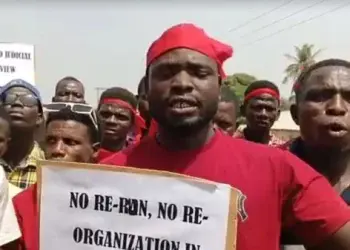Ghana’s veep, Professor Jane Naana Opoku-Agyemang, has called for the adoption of a new approach to development financing on the continent.
Her call comes in the wake of dwindling donor inflows and a shifting tide in sources of aid to the continent.
In view of the changing political climate in the West, which has come in tandem with reduced appetite for handouts, she has stressed the need for Ghana, and other developing nations to wean themselves off the teat of aid dependency.
Speaking at the Ghana Civil Society Forum 2025 on Wednesday, Professor Opoku-Agyemang said Ghana and the rest of the continent cannot rely on aid as a primary engine of development.
She continued, “as a government we need to create an enabling environment to boost domestic investment and mobilise new forms of financing.
We are being reminded to place citizens at the centre of decision making on the use of resources.”
She indicated that it is time for Ghana as a country to shift from dependency to ownership of its resources.
The Vice-President indicated that government is currently re-examining development models that rely too much on aid.
In the meantime, government is deepening domestic resource mobilisation, broadening the tax and reforming the public financial systems.
Government, in ‘re-examining financing’ is striving to harness new resources like climate financing, the diaspora bonds and sovereign wealth that can unlock global and local capital.”

The Vice President noted that development financing is not just about money, but rather, is about power and agency, hence the need for civic action and the views of citizens’ groups to be central to the nation’s vision of development.
The Chairman of the National Development Planning Commission (NDPC) Dr Nii Moi Thompson, said there is nothing wrong with receiving aid.
He however attributed the misapplication of aid to the underdevelopment of the continent.
He said, “if we crackdown on corruption, we should be able to deal with 90% of our problems.”
Dr Thompson posited that the lack of values and institutional weaknesses have been the bane to the development of the country.
He pointed to the growing trend of missing metal culvert covers as a prime example of the unpatriotic acts that have hamstrung the steady march of the country to a glorious end.
Programme Director at Star-Ghana, Ibrahim Tanko-Amidu described the current donor-dependent development financing model as unsustainable, especially amid global shifts in development priorities.
He noted that it is time for structural reform and a reconnection with communities based on values.












